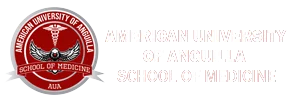Blogs
Challenges and Rewards of Studying Medicine in the Caribbean
Studying medicine is a challenging yet rewarding journey, and many aspiring doctors consider pursuing their medical education in the Caribbean. In this blog post, we will explore the unique challenges and rewards of studying medicine in the Caribbean, with a focus on the experiences of students at the American University of Anguilla (AUA) School of Medicine.
Challenges:
Adapting to a New Environment:
Moving to a new country can be daunting, with differences in culture, climate, and lifestyle.
Adjusting to a new educational system and teaching methods can initially pose a challenge.
Intensive Curriculum:
The medical curriculum is rigorous and demanding, requiring dedication and long hours of study.
Balancing the coursework, clinical rotations, and extracurricular activities can be overwhelming.
Distance from Home and Support Systems:
Being away from family, friends, and familiar support networks can be emotionally challenging.
Coping with homesickness and finding new avenues of support become essential.
Licensing and Residency Match:
Graduates of Caribbean medical schools must navigate the process of obtaining licensure and securing residency positions.
There may be additional steps and requirements compared to graduates of U.S. medical schools.
Rewards:
Diverse Learning Environment:
Studying medicine in the Caribbean provides exposure to a diverse student population from various backgrounds and cultures.
Interacting with classmates from different parts of the world enriches the learning experience.
Clinical Opportunities:
Caribbean medical schools often provide unique clinical opportunities, enabling students to work with diverse patient populations.
Exposure to tropical diseases, unique cases, and a varied healthcare system can broaden clinical skills and knowledge.
Cultural Immersion:
Living and studying in the Caribbean offers the chance to immerse oneself in a vibrant and diverse culture.
Exploring local traditions, cuisines, and recreational activities can enhance the overall experience.
Global Perspective:
Caribbean medical schools attract students from around the globe, fostering a global perspective on healthcare.
Learning about healthcare disparities, global health initiatives, and international collaborations can broaden horizons.
Career Opportunities:
A medical degree from a reputable Caribbean medical school, such as AUA, can open doors to opportunities worldwide.
Many graduates successfully match into residency programs in the United States and other countries.


